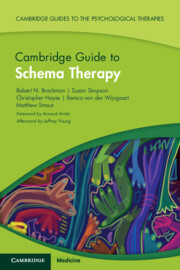Early maladaptive schemas (EMS), dysfunctional patterns of thought and emotions originated during childhood, latent in most mental disorders, might play a role in the onset of alcohol use disorder (AUD), although their impact on prognosis remains unknown. Our aim is to determine the presence of EMS in patients with AUD and their role in the psychopathology and course of addiction (relapse and withdrawal time). The sample included 104 patients and 100 controls. The diagnosis of AUD was made according to the Diagnostic and Statistical Manual of Mental Disorders (DSM–5) criteria, EMS were determined with the Young Schema Questionnaire in its Spanish version (YSQ–S3) and psychopathology with Symptom Checklist–27 (SCL–27). AUD group showed significantly higher scores in emotional deprivation, confused attachment, emotional inhibition and failure schemas. In addition, vulnerability schema correlated (> 0.500) with all subscales of SCL–27. Whereas social isolation, insufficient self-control and grandiosity schemas correlated with a higher number of relapses. But it was the grandiosity and punishment schemas that correlated with shorter abstinence time. These findings suggest that EMS are overrepresented in the AUD population and some correlate with psychopathology and worse AUD outcomes.
